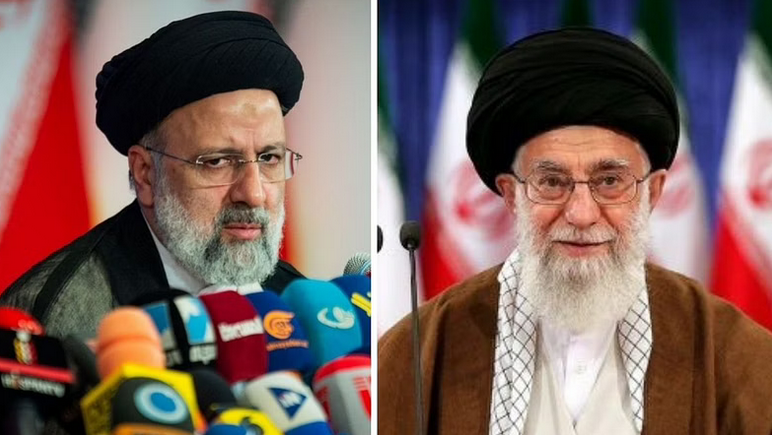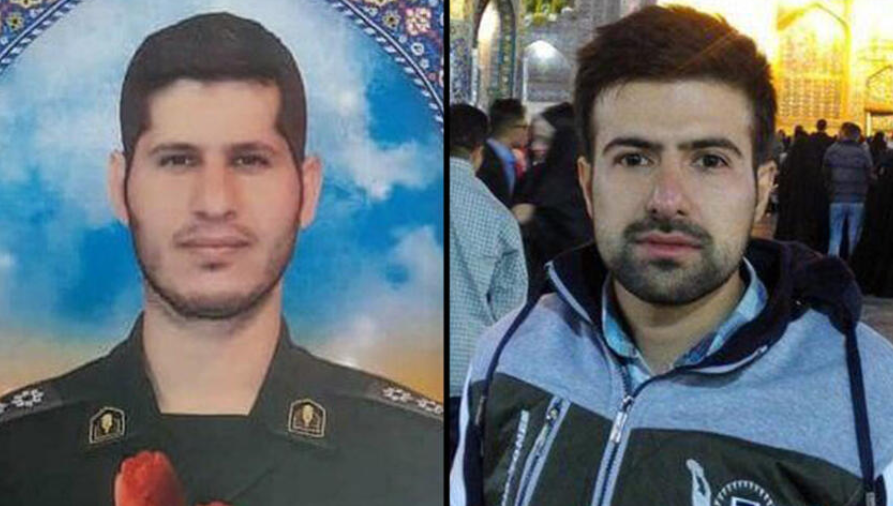
Iran’s president Ebrahim Raisi (left) and Supreme Leader Ayatollah Ali Khamenei (right)
Another turbulent year is coming to an end for Iran, with no sign of improved certainty and stability on the immediate horizon. What factors will determine developments in 2022 and beyond?
On the domestic political scene, the 2021 presidential election was unprecedented, being the first in the Islamic Republic to be predetermined by the actions of the Guardian Council and other state organs. The objective was to produce a political composition in which all areas of governance would be dominated by hard-line forces so that decision making would not be hampered by factional divisions.
As Iran Strategic Focus outlined at the time, however, such a unitary state structure is not feasible, because Iranian political forces act on the basis of interests rather than ideological preferences. It is therefore necessary to gauge which power networks are pre-eminent and how they will influence emerging strategic decisions.
The upcoming year will bring growing focus on the selection of a successor for Supreme Leader Ayatollah Ali Khamenei. It’s noticeable that Khamenei’s visibility has decreased in recent weeks. He still makes significant speeches and issues guidelines, but his influence is almost certainly waning.
The shift is being signalled by disarray and political infighting in the Supreme Leader’s office. Vahid Haghanian — a long-term deputy head of the office — has reportedly been marginalised, giving more power to IRGC Intelligence head Hossein Taeb.
Insiders have told Iran Strategic Focus that all political operatives insist on hearing any instruction or decree directly from Khamenei himself before acting on it. Who, then, will fill the power vacuum as long as he is officially Supreme Leader? And who will succeed him?
According to the Constitution, the Supreme Leader has to be a religious mojtahed (a leading interpreter of Islamic rulings). Furthermore, the expectation is that the successor to Khamenei will be a younger seyed (descendant of Prophet Mohammad) as well as an Ayatollah.
The institution in charge of selecting a new leader is the 86-member Assembly of Experts, which itself consists of senior clerics. Many observers believe that Khamenei will nominate his preferred successor, however, and some even suspect that Ebrahim Raisi will be the main contender. In fact, Khamenei himself was president before he was selected as the successor to Supreme Leader Ruhollah Khomeini.
When it comes to the actual succession, the Islamic Revolutionary Guard Corps (IRGC) will therefore not play a dominant role, but the competition to secure greater power by influencing the succession will be very significant in 2022, with the IRGC top command being the primary beneficiary.
It’s obvious that the IRGC network has gained influence over the past few years. The country has never had so many former IRGC commanders in key state positions, such as ministers, provincial governors, heads of major state institutions, and so on.
The growing power of the IRGC is weakening both the clergy and the traditional merchant community. Some experts understand recent criticism of political and economic conditions by senior clergy as an attempt to remain relevant and inhibit greater empowerment of the IRGC.
Of course, as long as the president himself is a cleric, the IRGC won’t manage a full takeover of power centres, but it will certainly consolidate its influence in key policy areas, especially nuclear strategy and regional and international relations.
At the same time, all key players in domestic politics recognise the need to regain the political legitimacy that was lost due to the engineered presidential election. An efficient vaccination campaign and improving COVID-19 infection and death rates helped, but deteriorating economic conditions continue to put pressure on the political structure, and growing social protests can be expected.
International relation continues…
This excerpt is taken from Iran Strategic Focus, our monthly intelligence report on Iran. Click here to receive a free sample copy.The December 2021 issue of Iran Strategic Focus also includes the following:
Commentary: Outlook 2022
- Domestic Politics
- International relations
- Economic outlook
Implications
Politics & Society
- Water protests in Isfahan
- Teachers strike over pay and contracts
- Military meetup
- Hope for detained dual nationals?
- Pandemic picture
Profile
- Asadollah Masoudi Magham
Economy
- Inflation and currency
- Raisi’s first budget bill
- Job creation plans and realities
- Non-crude exports
Energy
- Gas swap deal
- UAE investment in Khuzestan



